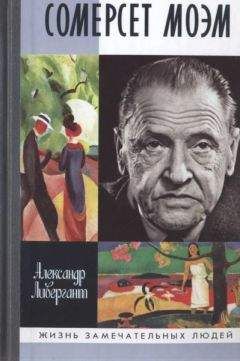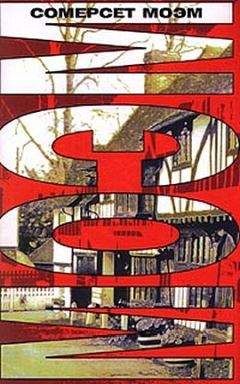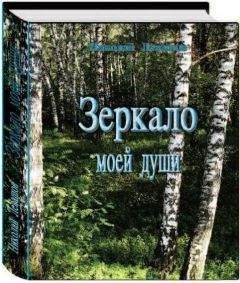Уильям Моэм - Мистер Всезнайка. Рассказы
bathing ['beIDIN], sure [Suq], justify ['dZAstIfaI]
"You bet I didn’t. All the time I was working I kept thinking of the bathing here and the vineyards and the walks over the hills and the moon and the sea, and the Piazza in the evening when everyone walks about for a bit of a chat after the day’s work is over. There was only one thing that bothered me: I wasn’t sure if I was justified in not working like everybody else did.
"Then I read a sort of history book (затем я прочитал нечто вроде учебника истории; history— история /последовательность событий/; история, историческая наука), by a man called Marion Crawford it was (это была /книжка, написанная/ кем-то по имени Марион Крофорд /1854-1909, американский писатель, живший в Италии и писавший на итальянские сюжеты/; tocall— кричать; называть, звать), and there was a story about Sybaris and Crotona (и была в ней история о Сибарисе и Кротоне). There were two cities (/это/ были два города); and in Sybaris they just enjoyed life and had a good time (и в Сибарисе люди: «они» просто наслаждались жизнью и хорошо проводили время), and in Crotona they were hardy and industrious and all that (а в Кротоне люди были стойкие, и трудолюбивые, и все такое; hardy— выносливый). And one day the men of Crotona came over and wiped Sybaris out (и /вот/ однажды, жители Кротона пришли и стерли Сибарис с лица земли; tocomeover— зд. приехать издалека;towipe/out/ — вытирать; уничтожать, ликвидировать), and then after a while a lot of other fellows came over from somewhere else and wiped Crotona out (а потом, через некоторое время, откуда-то еще явилась орда /каких-то/ других людей и уничтожила Кротону; lot— жребий; разг. большое количество, множество). Nothing remains of Sybaris, not a stone (ничего не осталось от Сибариса, ни одного камня), and all that’s left of Crotona is just one column (а все, что осталось от Кротоны — всего одна колонна; toleave— оставлять). That settled the matter for me (это и решило для меня весь вопрос; matter— вещество, материал; дело, вопрос)."
"Oh (да)?"
"It came to the same in the end, didn’t it (закончилось все одинаково, не так ли: «все пришло к одному и тому же концу, не так ли»)? And when you look back now, who were the mugs (а теперь, взглянув назад, кто же был простофилей = кто же остался в дураках; tolookback— оглядываться; обращаться к прошлому /мысленно/;mug— разг. простак, балбес)?"
I did not reply and he went on (я не ответил, и он продолжил).
industrious [In'dAstrIqs], column ['kOlqm], settle [setl], matter ['mxtq]
"Then I read a sort of history book, by a man called Marion Crawford it was, and there was a story about Sybaris and Crotona. There were two cities; and in Sybaris they just enjoyed life and had a good time, and in Crotona they were hardy and industrious and all that. And one day the men of Crotona came over and wiped Sybaris out, and then after a while a lot of other fellows came over from somewhere else and wiped Crotona out. Nothing remains of Sybaris, not a stone, and all that’s left of Crotona is just one column. That settled the matter for me."
"Oh?"
"It came to the same in the end, didn’t it? And when you look back now, who were the mugs?"
I did not reply and he went on.
"The money was rather a bother (источником беспокойства были деньги; bother— беспокойство, хлопоты). The bank didn’t pension one off till after thirty years’ service (банк отправлял на пенсию только после тридцати лет службы; till/after/ — указывает на момент, вплоть до которого совершается действие), but if you retired before that they gave you a gratuity (но если ты уходил раньше того, они давали денежное пособие)". With that and what I’d got for the sale of my house (с этим /денежным пособием/ и тем, что я получил бы от продажи своего дома; toget— доставать; получать) and the little I’d managed to save (и тем немногим, что мне удалось скопить), I just hadn’t enough to buy an annuity to last the rest of my life (у меня не было достаточно /денег/, чтобы купить ренту, которой бы хватило до конца моей жизни; tolast— продолжаться, длиться; быть достаточным, хватать;rest— остаток, остальное). It would have been silly to sacrifice everything so as to lead a pleasant life (было бы глупым пожертвовать всем для того, чтобы вести приятную жизнь) and not have a sufficient income to make it pleasant (и не иметь достаточного дохода, который бы делал эту жизнь приятной). I wanted to have a little place of my own (мне хотелось иметь свой собственный маленький домик; place— место; дом, жилище;own— собственность, принадлежность), a servant to look after me (слугу, который бы мне прислуживал; tolookaftersmb. — присматривать, ухаживать за кем-либо), enough to buy tobacco (достаточно /денег/, чтобы купить табак), decent food (приличную еду), books now and then (время от времени книги), and something over for emergencies (и немного про запас, в случае необходимости; over— излишек, избыток;emergency— непредвиденный случай; чрезвычайные обстоятельства).
gratuity [grq'tju: ItI], annuity [q'nju: ItI], sacrifice ['sxkrIfaIs], sufficient [sq'fIS(q)nt], decent ['di: s(q)nt], emergency [I'mWdZ(q)nsI]
"The money was rather a bother. The bank didn’t pension one off till after thirty years’ service, but if you retired before that they gave you a gratuity". With that and what I’d got for the sale of my house and the little I’d managed to save, I just hadn’t enough to buy an annuity to last the rest of my life. It would have been silly to sacrifice everything so as to lead a pleasant life and not have a sufficient income to make it pleasant. I wanted to have a little place of my own, a servant to look after me, enough to buy tobacco, decent food, books now and then, and something over for emergencies.
"I knew pretty well how much I needed (я довольно-таки хорошо знал, сколько мне нужно /денег/). I found I had just enough to buy an annuity for twenty-five years (я обнаружил = оказалось, что у меня было как раз достаточно /денег/, чтобы купить ренту на двадцать пять лет; tofind— находить, отыскивать; убеждаться, приходить к заключению)."
"You were thirty-five at the time (вам в то время было тридцать пять)?"
"Yes. It would carry me on till I was sixty (ее бы хватило, чтобы обеспечить меня /материально/ до шестидесяти лет; tocarry— нести, носить; поддерживать материально, оказывать финансовую помощь). After all, no one can be certain of living longer than that (в конце концов, никто не может быть уверен, что проживет дольше шестидесяти: «дольше, чем это»; certain— определенный, неизменный; уверенный, убежденный;long— длинный; долгий, продолжительный), a lot of men die in their fifties (многие: «много людей» умирают на шестом десятке; fifties— числа от 50 до 59; возраст от 50 до 59 лет), and by the time a man’s sixty he’s had the best of life (и к тому времени, когда человеку исполняется шестьдесят, он уже получил от жизни все самое лучшее; tohave— иметь; получать)."
"On the other hand no one can be sure of dying at sixty (с другой стороны, никто не может быть уверен, что умрет в шестьдесят; hand— рука, кисть руки; сторона)," I said.
"Well, I don’t know (ну, я не знаю). It depends on himself, doesn’t it (это зависит от человека, не так ли)?"
"In your place I should have stayed on at the bank till I was entitled to my pension (на вашем месте я бы остался в банке до тех пор, пока не получил бы право на свою пенсию; toentitle— давать право;tobeentitled— иметь право)."
certain [sWtn], dying ['daIIN], entitle [In'taItl]
"I knew pretty well how much I needed. I found I had just enough to buy an annuity for twenty-five years."
"You were thirty-five at the time?"
"Yes. It would carry me on till I was sixty. After all, no one can be certain of living longer than that, a lot of men die in their fifties, and by the time a man’s sixty he’s had the best of life."
"On the other hand no one can be sure of dying at sixty," I said.
"Well, I don’t know. It depends on himself, doesn’t it?"
"In your place I should have stayed on at the bank till I was entitled to my pension."
"I should have been forty-seven then (тогда мне было бы сорок семь). I shouldn’t have been too old to enjoy my life here (я был бы не слишком старым для того, чтобы получать удовольствие от своей жизни здесь), I’m older than that now and I enjoy it as much as I ever did (сейчас мне больше чем сорок семь: «я старше, чем тот /возраст/ сейчас», и я наслаждаюсь жизнью точно так же, как и всегда /наслаждался/; ever— когда-либо, когда бы то ни было), but I should have been too old to experience the particular pleasure of a young man (но я был бы уже слишком старым для того, чтобы испытать определенные удовольствия, /доступные/ молодому человеку). You know, you can have just as good a time at fifty as you can at thirty (вы же знаете, и в пятьдесят лет можно проводить время так же хорошо, как и в тридцать), but it’s not the same sort of good time (но это не один и тот же вид хорошего времяпровождения).
enjoy [In'dZOI], experience [Ik'spI(q)rIqns], particular [pq'tIkjulq]
"I should have been forty-seven then. I shouldn’t have been too old to enjoy my life here, I’m older than that now and I enjoy it as much as I ever did, but I should have been too old to experience the particular pleasure of a young man. You know, you can have just as good a time at fifty as you can at thirty, but it’s not the same sort of good time.
"I wanted to live the perfect life (мне хотелось пожить совершенной/идеальной жизнью) while I still had the energy and the spirit to make the most of it (пока у меня все еще было достаточно энергии и решительности взять от нее все;spirit — душа, дух; энергия, решительность, задор; to make the most of smth. — использоватьчто-либонаилучшимобразом, максимально). Twenty-five years seemed a long time to me (двадцать пять лет казались мне большим сроком; time — время; периодвремени), and twenty-five years of happiness seemed worth paying something pretty substantial for (а двадцать пят лет счастья казались достойными, чтобы заплатить за них чем-то достаточно весомым; worth — стоящий, имеющийстоимость; заслуживающий, стоящий; substantial — прочный, крепкий; существенный, важный). I’d made up my mind to wait a year and I waited a year (я решил подождать год, и я подождал один год; to make up one's mind — решить, принятьрешение). Then I sent in my resignation (потом я подал в отставку; to send — посылать; to send in — зд. подаватьзаявление; resignation — отказотдолжности; заявлениеоботставке) and as soon as they paid me my gratuity (и как только мне выплатили: «они заплатили» мне /мое/ пособие) I bought the annuity and came on here (я купил ренту и приехал сюда)."
energy ['enqdZI], happiness ['hxpInIs], substantial [sqb'stxnS(q)l], resignation ["rezIg'neIS(q)n]
"I wanted to live the perfect life while I still had the energy and the spirit to make the most of it. Twenty-five years seemed a long time to me, and twenty-five years of happiness seemed worth paying something pretty substantial for. I’d made up my mind to wait a year and I waited a year. Then I sent in my resignation and as soon as they paid me my gratuity I bought the annuity and came on here."




